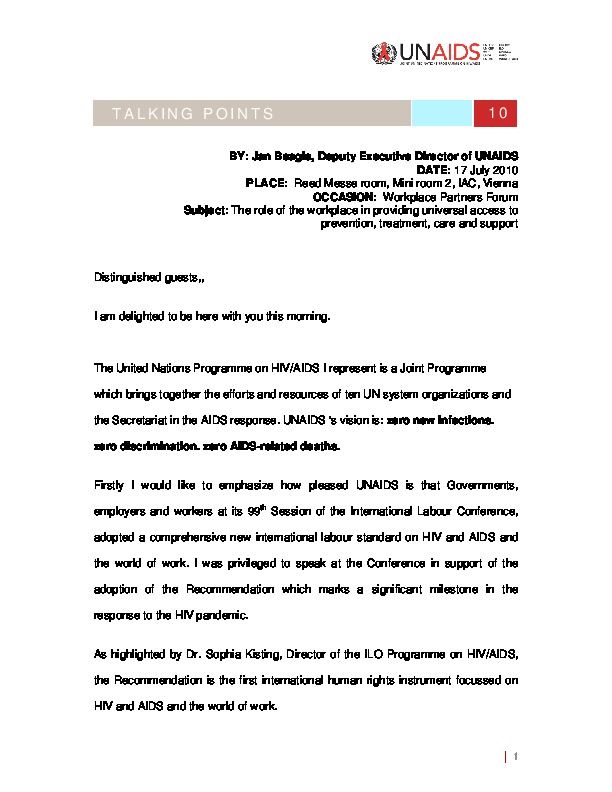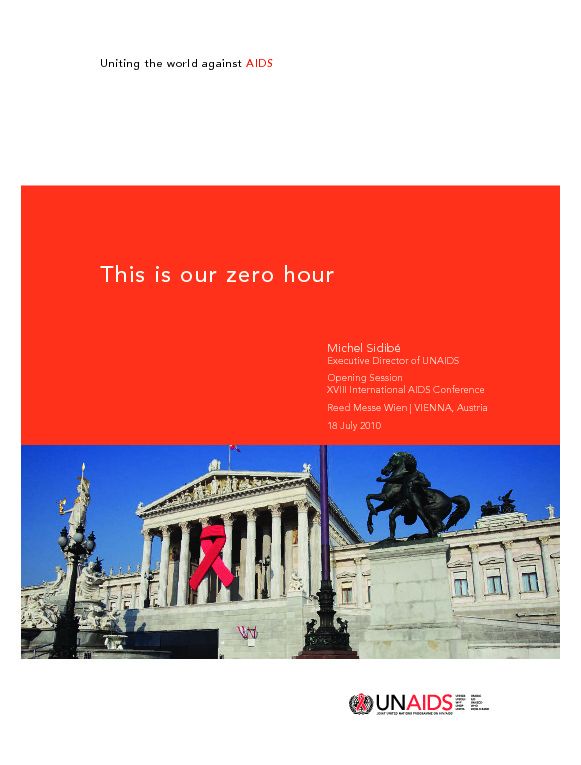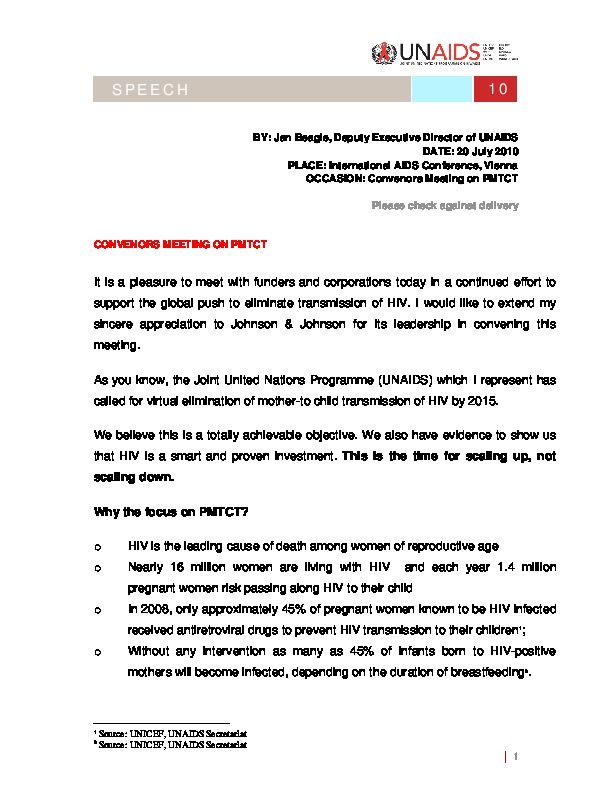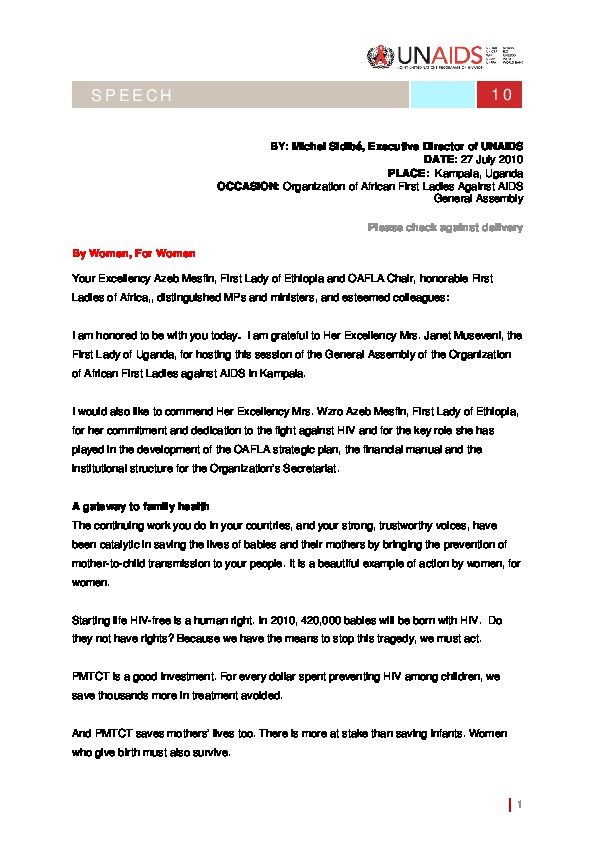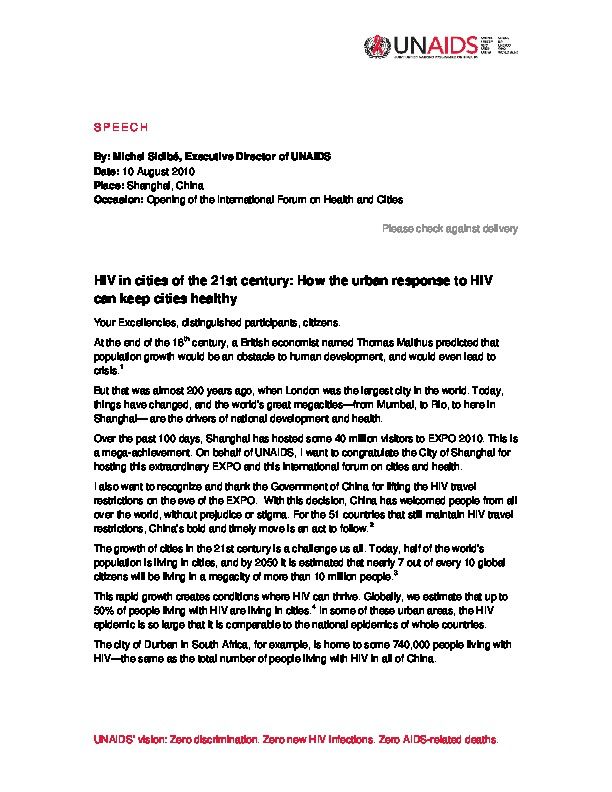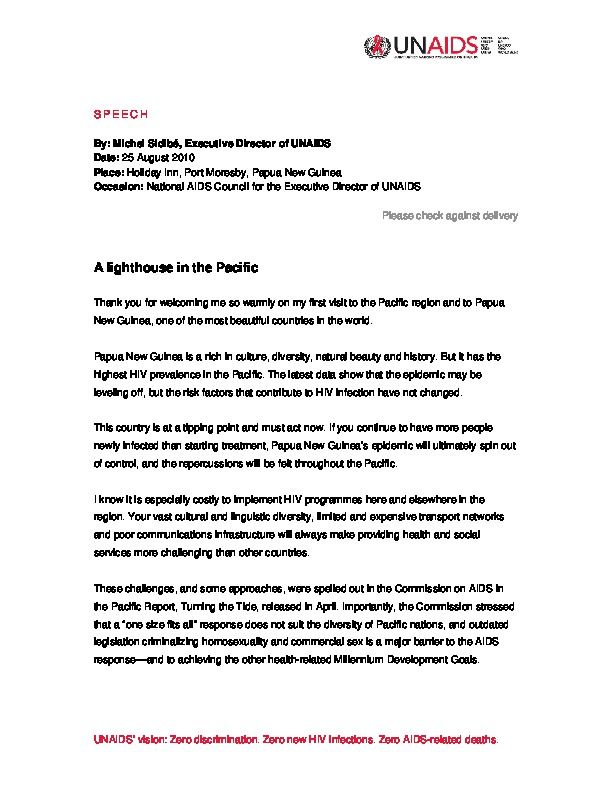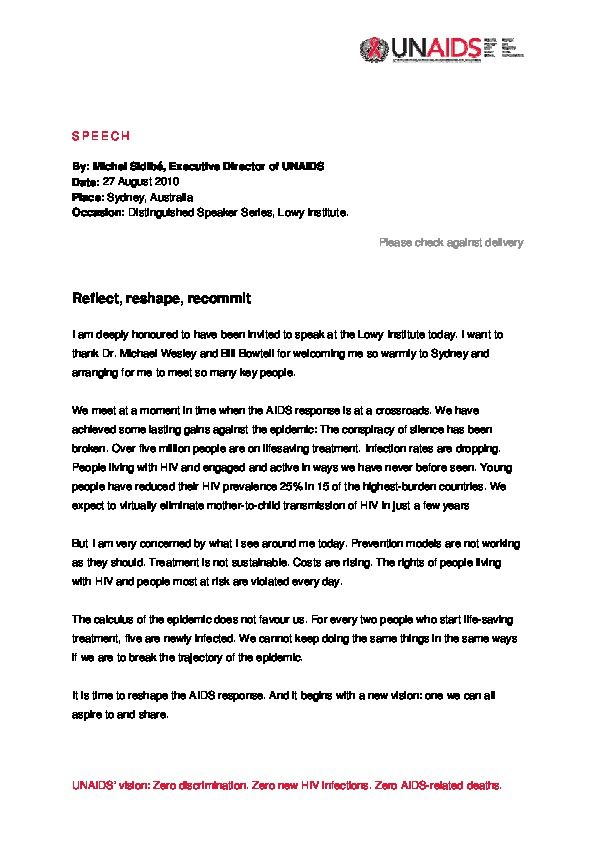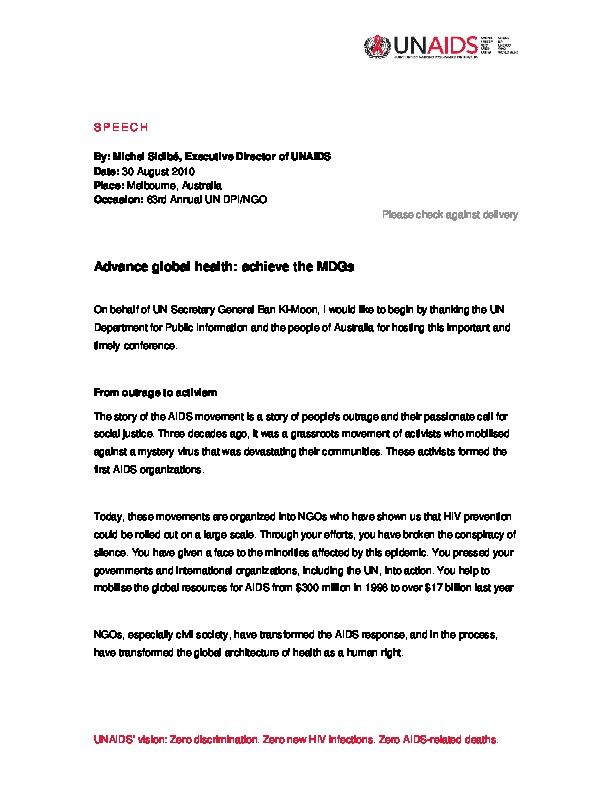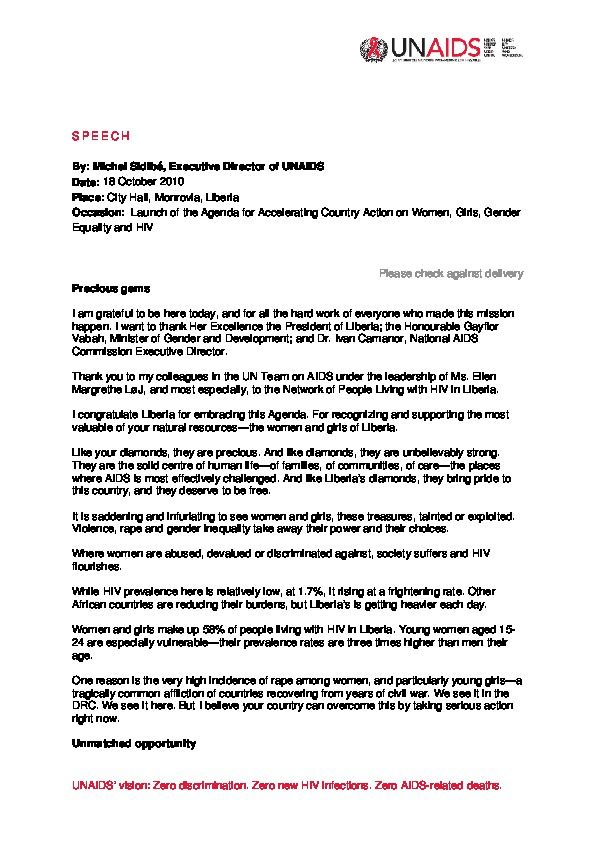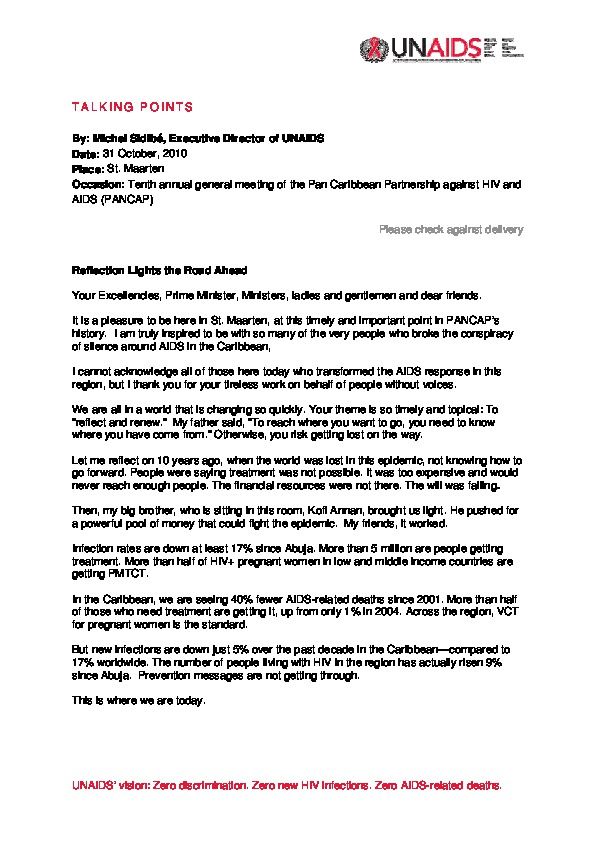Documents
A lighthouse in the Pacific
25 août 2010
Documents
UNAIDS Executive Director’s speech at Lowy Institute
27 août 2010
We meet at a moment in time when the AIDS response is at a crossroads. We have achieved some lasting gains against the epidemic: The conspiracy of silence has been broken. Over five million people are on lifesaving treatment. Infection rates are dropping. People living with HIV and engaged and active in ways we have never before seen. Young people have reduced their HIV prevalence 25% in 15 of the highest-burden countries. We expect to virtually eliminate mother-to-child transmission of HIV in just a few years
Documents
Advance global health: achieve the MDGs
30 août 2010
NGOs tackle the work that governments will not do, cannot do, or dont do well. UNAIDS Executive Director calls on NGOs to lead the next big step forward. To make investments and momentum for AIDS into a bridge for producing larger health and development outcomes. Only with the leadership role of NGOs can we take AIDS out of isolation and fully integrate the AIDS response with the MDGs.
Documents
Launch of the Agenda for Accelerating Country Action on Women, Girls, Gender Equality and HIV
18 octobre 2010
Like your diamonds, they are precious. And like diamonds, they are unbelievably strong. They are the solid centre of human life—of families, of communities, of care—the places where AIDS is most effectively challenged. And like Liberia’s diamonds, they bring pride to this country, and they deserve to be free.
Documents
Tenth annual general meeting of the Pan Caribbean Partnership against HIV and AIDS (PANCAP)
31 octobre 2010

